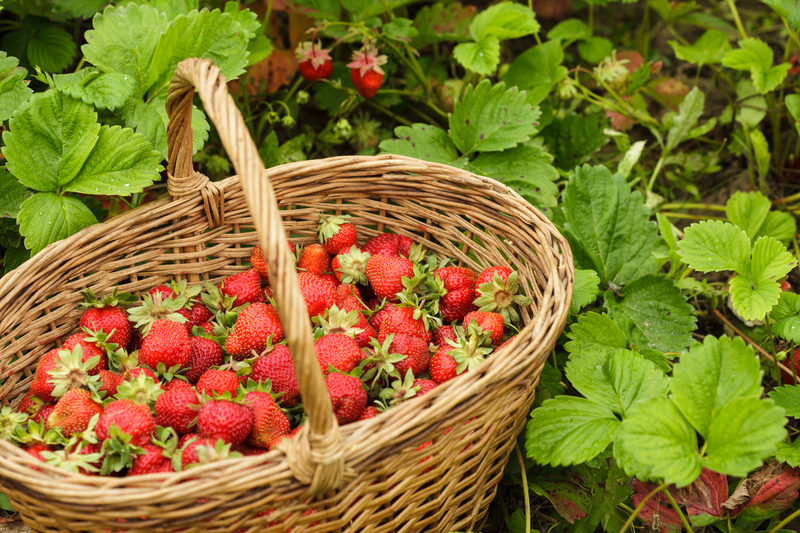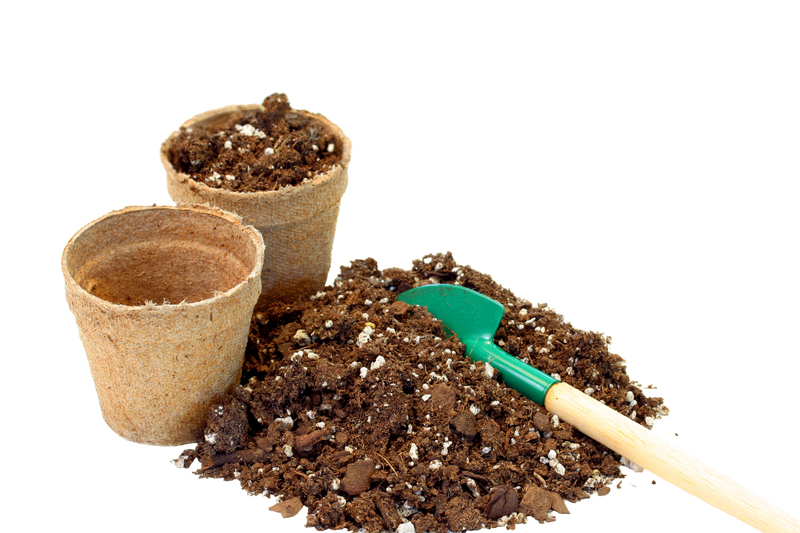Mastering Weed Control: Top 3 Expert Tips
Posted on 31/08/2025
Mastering Weed Control: Top 3 Expert Tips
Weed control is a crucial aspect of maintaining a healthy, beautiful garden or landscape. Whether you're a seasoned gardener or just starting out, one thing is certain: mastering weed control techniques will save you time, money, and endless frustration. In this comprehensive guide, we'll unveil expert-recommended strategies for tackling weeds, ensuring your plants flourish and your outdoor spaces remain immaculate. If you aspire to achieve the perfect lawn or a verdant vegetable bed, understanding the best weed control methods is non-negotiable.
The Significance of Effective Weed Control
Weeds are not just unsightly invaders in your garden; they can seriously compromise the health of your desirable plants. By competing for sunlight, water, and nutrients, weeds can stunt the growth of flowers, grass, and crops. Furthermore, some aggressive weed species may even harbor diseases and pests.
Why prioritize weed control?
- Promotes healthy plant growth
- Prevents the spread of pests and disease
- Enhances garden appearance
- Reduces maintenance time and costs

Understanding the Basics: Weed Identification
Before diving into the top weed control tips, it's important to recognize the types of weeds in your garden. Weeds generally fall into three categories:
- Annual Weeds: Complete their life cycle in one season (e.g., crabgrass, chickweed).
- Biennial Weeds: Take two years to complete their life cycle (e.g., bull thistle).
- Perennial Weeds: Live for several years and can reproduce via seeds and roots (e.g., dandelion, Bermuda grass).
Accurate identification helps you determine the best weed management strategy for your yard or garden beds.
Top 3 Expert Tips for Mastering Weed Control
If you're ready to transform your landscape and put an end to weed woes, these three expert tips will put you on the right path to weed control mastery!
Tip #1: Prioritize Preventive Techniques
One of the best ways to control weeds is to stop them before they ever sprout. Preventive weed control minimizes your garden's exposure to unwanted invaders and reduces reliance on chemical solutions.
Mulching for Weed Suppression
- Apply a 2-3 inch layer of organic mulch (such as wood chips, bark, straw, or compost) around plants and over bare soil.
- Mulch acts as a barrier, blocking sunlight from reaching weed seeds and preventing their germination.
- Organic mulch also improves soil health as it decomposes, boosting plant resilience to weeds.
Landscape Fabric and Barriers
- Install landscape fabric underneath mulch in garden beds and pathways for added protection.
- Ensure the fabric is permeable to allow water and air to reach the soil, but thick enough to inhibit weed growth.
- Consider edging or border materials (like stone, metal, or plastic) to prevent grasses and creeping weeds from spilling into beds.
Dense Planting and Ground Covers
- Plant closely spaced crops or dense ground covers to shade soil and outcompete weeds.
- Low-growing perennials and cover crops such as clover or creeping thyme make excellent living mulches.
Prevention is always more effective than a cure–by focusing on proactive weed management, you'll significantly reduce outbreaks and maintenance throughout the season.
Tip #2: Adopt Smart Manual and Mechanical Control
Despite your best efforts, some weeds will inevitably sneak into your garden. That's where manual and mechanical weed removal methods become invaluable. These practices let you target weeds precisely without disturbing your desired plants or introducing unnecessary chemicals to your landscape.
Hand Pulling and Hoeing
- Pull annual and small weeds while they're young and their roots are shallow—preferably after rain or watering the soil for easier removal.
- Make sure to extract the entire root system of perennial weeds. Leftover root fragments can sprout new plants.
- Use a hoe or weeding tool to slice the crowns of weeds just below the soil surface, especially in vegetable rows and open plots.
Flame Weeding
- Flame weeders use intense heat to kill weed foliage quickly, especially effective in pathways, driveways, or gravel areas.
- Use caution and fire safety practices. Flame weeding is not ideal near flammable mulch or dry conditions!
String Trimming and Mowing
- Regular mowing prevents weeds like dandelion and crabgrass from flowering and setting seed in your lawn.
- For persistent area weeds, a string trimmer (weed eater) helps keep them in check until you can apply further control measures.
Consistency is key! Make it a habit to inspect and weed your garden regularly, attacking new weeds before they mature and spread seeds. Regular maintenance beats annual weed explosions every time.
Tip #3: Use Integrated Weed Management (IWM) and Responsible Chemical Controls
Integrated Weed Management (IWM) is the holistic approach experts recommend for advanced weed control. It means blending cultural, mechanical, biological, and chemical strategies to keep weeds at bay without overreliance on any single method.
Understanding Selective Herbicides
- Select the right product for your needs: Pre-emergent herbicides prevent seeds from sprouting, while post-emergent herbicides target established weeds.
- Read all labels carefully and only use herbicides labeled for your plant species and situation. Misuse can harm desirable plants and carry environmental risks.
- Spot-treat problem areas, applying chemicals only where necessary to minimize impact on soil health and beneficial insects.
Timing is Everything
- Apply pre-emergent herbicides in early spring or fall, coinciding with weed seed germination windows.
- Post-emergent sprays are best used when weeds are actively growing and before they flower or produce seeds.
- Avoid windy days and upcoming rain to prevent herbicide drift and runoff.
Non-Chemical Alternatives
- For those seeking organic approaches, try natural weed killers containing vinegar, salt, or essential oils. Use these methods with care, as non-selective organics can also harm your desired plants.
- Encourage beneficial insects and healthy soil microbiomes, which help keep some weed populations in check.
- Rotate crops and adjust your planting schemes to disrupt life cycles of persistent repeat offenders.
Bonus Strategies: Long-Term Weed Control Habits
To truly excel at comprehensive weed control, develop these expert-backed habits:
- Monitor and Early Detection: Walk your yard weekly and pull or treat weeds at the first sign of emergence.
- Keep Edges Tidy: Edges and borders are primary entry points for weeds, so keep them neat and mulched.
- Clean Tools and Equipment: Prevent the spread of weed seeds via boots, mowers, or hand tools by washing them after use.
- Healthy Soil Practices: Feed your soil with compost and organic matter so your desired plants outpace potential weeds.
- Avoid Soil Disturbance: Minimal tilling prevents bringing buried weed seeds to the surface where they can sprout.
By integrating these habits, you'll build an environment where weeds are outcompeted and far less likely to develop into major nuisances.

Frequently Asked Questions About Weed Control
What is the most effective way to kill weeds permanently?
Completely eradicating weeds is difficult, but the most effective approach combines: using mulch or landscape fabric to block new weeds; removing existing weeds manually before seeds form; and, if needed, targeted use of herbicides. Persistence is essential!
What is the best time of year for weed control?
The best time for weed control depends on your local climate and the type of weeds. Generally, early spring and fall are critical periods to stop seed germination and tackle newly sprouted weeds.
Are organic weed control methods as effective as chemicals?
Organic and cultural methods can be highly effective, especially if implemented proactively. While chemical controls might act faster on stubborn infestations, a holistic approach--including mulching, hand weeding, and dense planting—provides lasting results with less environmental impact.
How can I control weeds without harming my pets or children?
Focus on non-toxic weed control techniques: mulching, hand-pulling, dense planting, landscape barriers, and organic spot treatments (like vinegar or boiling water). Avoid chemical herbicides where pets and children play.
Conclusion: Take Charge of Your Weed Control Strategy
With the right knowledge and persistent effort, mastering weed control is achievable for any gardener or homeowner. By prioritizing prevention, employing smart manual and mechanical removal, and integrating safe chemical or organic solutions as needed, you'll enjoy a yard or garden that truly thrives.
- Start with prevention: Mulch, dense planting, and barriers dramatically reduce weed pressure.
- Act quickly: Remove weeds when small and before they flower or drop seeds.
- Integrate your approach: Use a blend of methods for comprehensive, sustainable control.
Don't let your garden be overrun! Embrace these expert weed control tips and cultivate an outdoor space you can enjoy all season long.
Looking for more tips? Stay tuned to our blog for the latest on weed management, organic gardening, and landscape care, and let us help you master weed control for good!
Latest Posts
Essential Tips for Designing a Child-Friendly Garden Oasis
Gardening and Dog Companions: Harmonious Tips for a Flourishing Yard
Designing the Perfect Seating Corner for Your Outdoor Retreat

